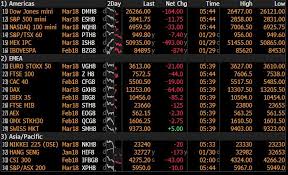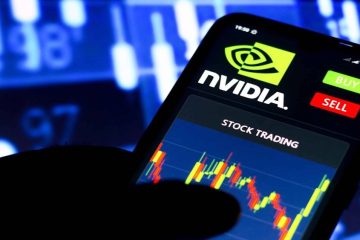The London Stock Exchange buys Refinitiv

AROUND 2AM, as the London Stock Exchange Group (LSE) hammered out an agreement with Blackstone to buy Refinitiv, a data-provider, mice scurried out of the corners. Unfair tactics, quipped the Blackstone side. But the American private-equity firm still struck a superb deal. On July 27th the LSE said it would buy Refinitiv (including its debt) for $ 27bn in shares. Blackstone has doubled its money in ten months after buying 55% of the data firm in a consortium last year.
The prospect of a 321-year-old British champion shaking off the Brexit gloom to buy a big international firm caused much glee in London. On July 29th the LSE’s shares closed up 15% on the day. Refinitiv’s sales span most asset classes, with three-fifths coming from North America and Asia. “The London Stock Exchange is turning away from Europe and endorsing Global Britain,” crowed one commentator.
Get our daily newsletter
Upgrade your inbox and get our Daily Dispatch and Editor’s Picks.
Truth be told, the LSE might still have snapped up Refinitiv had the referendum of 2016 gone the other way. The rationale is clear. Several years ago it pivoted from listings towards selling financial-markets data and analytics, for which demand is voracious. And Refinitiv is the owner of Eikon data terminals, used by traders and fund managers, and Elektron, a data-feed business. Other stock exchanges have seen the same opportunity: in 2015, for example, ICE, the owner of the New York Stock Exchange, bought Interactive Data for $ 5.2bn.
Yet the LSE’s purchase is bigger and therefore riskier. It is buying a complex conglomerate with earnings before interest, tax and depreciation of $ 1.6bn last year, against the LSE’s $ 1.4bn. Refinitiv’s headcount of 18,500 far exceeds the LSE’s 4,600. According to Keefe, Bruyette & Woods (KBW), an investment bank, in 2018 Refinitiv would have contributed 70% of the combined firm’s revenues and 55% of operating profit, based on pro forma numbers.
The deal will ensure that the LSE is “well positioned for future growth”, said David Schwimmer, its boss since last August. It was broadly well received, but analysts will have questions about the price, the quality of the asset and what the LSE will do with it. Last year Blackstone and two partners bought the 55% of Refinitiv (as they renamed it) from Thomson Reuters at a value of $ 20bn. They paid mostly with debt. The $ 4bn of equity and preferred debt they put in is now worth around $ 8bn on paper. The LSE is assuming about $ 12bn of net debt, pushing its leverage much higher.
Blackstone gave Refinitiv a new brand and took out $ 350m a year of costs. It used its clout as a big fee-payer to investment banks to secure the flotation of Refinitiv’s Tradeweb platform, which those banks part-owned, and twisted arms to help Eikon. “Complex carve-outs are one of the things Blackstone private equity does really well,” says Martin Brand, the Blackstone executive who did the deals.
It also tried to revive growth at Refinitiv, which has been stagnant (see chart). In 2018, notes KBW, its revenues were 7% lower than in 2012, at $ 6.3bn. Although some divisions, including compliance and Elektron, are doing decently, the desktop business is shrinking. Traders complain that Eikon terminals are clunky compared with those of the market leader, Bloomberg.
So Mr Schwimmer’s bold move will slow down what has been one of the world’s fastest-growing stock-exchange groups in recent years. Investors hope that as well as cutting more costs at its new acquisition, LSE can increase revenues by exchanging data between Refinitiv and its index and other business. If it keeps the desktop business it will need to say how it will fix it, says Kyle Voigt of KBW.
Competition authorities in both Europe and America are sure to look hard at the deal. European market watchdogs are already investigating the rising price of financial data, which is partly caused by industry consolidation. If they intervene, expect much breast-beating about a cruel continent blocking a bold British deal. ■










